- Home
- Megan Derr
Once Upon a Dream Page 2
Once Upon a Dream Read online
Page 2
He kept reading, absorbing himself in the complicated text, forgetting everything else. He read the way his grandfather had taught him: steady, even, and clear—until suddenly he was finished. Judoc stared at the book a moment, then shook himself and looked up with a smile.
Rozzen was staring at him, a slight flush to his cheeks. "You're very good at that."
Judoc laughed, scrubbing at his hair. "My grandfather made me read to him. He liked books, but his eyes went bad as he got older. No one else who could read had the patience for it, so I read to him every night until he fell asleep. I enjoyed doing it."
He hadn't realized until then just how much he missed it, he had been so busy with sword, lances, horses, drills, dancing, etiquette… Being a knight, it was easy to forget all the things about home he had liked even as he had remembered all the things he'd hated.
He closed the book and handed it back, "Uh—did it help? With that curse?"
"Yes," Rozzen said, and seemed to collect himself. "I needed to know how the curse mage who wrote this book wove a particular curse, since it forms the basis for the curse I am trying to break. I think I have a better idea of what to do now, thank you." He stood up, and pulled something from his finger, tossing it to Judoc. "For your chivalrous deed, knight."
Judoc caught it deftly, and stood to bow politely as Rozzen departed, staring after him a moment. He resumed his seat, feeling lost again as stared at the gold ring in his hand—Proof of Challenge.
One down, two to go… yet he did not feel at all victorious.
*~*~*
Several days later, he was trudging home from being sent to deliver a message—work normally reserved for heralds, but the area was dangerous and the message unpleasant, so they had opted to send a knight-hopeful. The others being too busy with their challenges, and Judoc at loose ends because he would not approach anyone, they had sent him.
He was glad he had opted for his leather armor rather than full mail; there was so much rain pounding down he shuddered to think how much more miserable he would be. Judoc made a futile effort to wipe rain from his face and pulled his hood back up after the wind whipped it off. Another hour or so, and he would be home; he could clean up, dry off, and fall into bed—and he dared anyone to wake him before midday.
The clouds and rain were so heavy he could not see far ahead—and dark was coming far too fast, curse it. He should have waited it out, but he had thought he would be able to beat the weather.
He was so lost in his thoughts that he almost did not see the figure on the side of the road, huddled beside a fallen horse. Drawing his mount to a halt, Judoc dismounted, the jangling of his spurs muffled but still audible, causing the man to look up.
Lord Rozzen, and he looked even more miserable than Judoc—covered in mud, his face scratched and bleeding, and he was definitely holding his arm gingerly against his chest. "My lord," Judoc said, kneeling beside him on the muddy ground. It took only a glance to see what must have happened—the horse had taken a fall, broken its leg, and Rozzen had been forced to put it down and leave himself stranded. "Let us get you home," Judoc said, and quickly gathered up Rozzen's saddlebags and knapsack.
When the bags were settled, Judoc returned to Rozzen and carefully helped him to his feet. "Can you mount?"
"Yes," Rozzen said, pale with pain, but his voice firm.
Judoc led him to the horse, then helped him up. When Rozzen was settled, Judoc swung up behind him, wrapping his own large cloak around them both as much as he was able as he ordered his horse to go. It was slow going, but suddenly it did not seem so tedious—even if they never spoke, even if Rozzen somehow managed to fall asleep.
When the castle at last came into view, Judoc could have wept from relief. He rode through the gates, across the yard and right up to the keep proper. Only then, as servants came rushing out to help, did he finally dismount and carefully help Rozzen.
Rozzen, who looked even worse than he had before. Judoc got the location of Rozzen's rooms from the servants and, after bidding them bring healing supplies and food, lifted Rozzen into his arms and carried him off. In Rozzen's chambers, he stripped Rozzen down and cleaned him with the hot water and soap servants brought. Toweling him dry, Judoc pushed him into his bed, made him drink a potion, and finally let him go back to sleep.
Only after Rozzen seemed to be resting well did Judoc finally depart to tend to himself, shivering the whole time.
When he woke a few hours later, his room was lit by a single candle—which gleamed on a gold ring, set upon a scrap of parchment. He picked up the parchment, read the words of thanks, and stared at the wax pressed with Rozzen's seal.
Picking up the ring, he slid it onto his finger to join the first, then pulled the blankets back up around him and went back to sleep.
*~*~*
Judoc should be panicking. The challenges would close in just three more days and he was a challenge short, a vassal short, and would go from being a knight-hopeful to nothing.
He was too busy daydreaming of Lord Rozzen to care, and what a great fool that made him. Judoc sighed, and wished again he could get the man out of his head—but everywhere he turned something else reminded him of Lord Rozzen. Of their two encounters, and the strange disappointment he felt that each time he was simply given a token. It chaffed Lord Rozzen thought that was his only reason for helping, and that he merited them for such simple things that anyone could do.
Tokens were the very least of his concern, but it seemed a stupid thing to say when of course he should want tokens—he was in a mess because he had not sought them. In three days he would sit alone while his fellows were awarded their spurs.
Making a face, thoroughly sick of himself, Judoc decided to go for a ride. Returning to his room, he changed his courtly clothes for an older clothes and his leather armor. It took him only moments to ready his horse and ride out, exploring the countryside in search of an answer he knew he would not find.
The sound of frightened screams jerked him from his thoughts, and he stopped his horse, looking around for the source—and saw farmers in a half-harvested field waving their arms. He rode across the field, and saw the problem immediately upon reaching them.
One of the men lay on the ground, shuddering and twitching, spittle covering his mouth, eyes rolled to the back of his head. To judge from the smells of burnt flesh and hot metal, the way his hand was blackened …
"He's been cursed," Judoc said quietly. He looked up at one of the women. "Go to the castle, fetch Lord Rozzen. He is a curse breaker." He turned to the others and gestured. "Take him to the road, tend him as best you're able. Has anyone else been afflicted?"
"Aye," an old man said, "but he died in the night, we thought from illness."
Judoc nodded, and gestured. "Go to my saddlebags; there is a bottle of purified water in them. Test everything that might possibly have a curse placed in it."
"We're never going to get the harvesting done," the old man said, looking all the older suddenly. "That is four people now who will not be in the field."
"I will help make up for the four, until the curse breaker comes and set all to rights," Judoc said, and stripped off his armor.
The farmers, almost a dozen of them gathered by that point, eyed him critically—knights and lords were all well and good, their expressions said, but they did not make good farmers. Judoc only smiled and threw his tunic to join his leather armor. Then he picked up the cursed man's abandoned scythe and started working. He had not worked in a field in a long time, but his body had not forgotten the rhythms of reaping the crops his family worked so hard to plant.
Putting all his attention on the work, he was only distantly aware of everything else around him. The harvesting always came first.
When it grew too dark to work, he finally stopped, sore and filthy and exhausted—but the farmers were happy, making him feel awkward with their praise.
By the roadside, the cursed man was awake, pale and shaky, but recovering. Lord Rozzen stood nearb
y, speaking with a cluster of villagers. He turned as Judoc approached, and smiled warmly. "Greetings, Knight. Thanks to your opportune arrival, a terrible curse was broken well before greater damage could be caused. The villain was just taken away by the Sheriff. You work in the field like one born to it."
"I was born to it," Judoc replied. "My family works the land of Lord Grayso, nine days' journey from here. I am glad I was able to help. So all is well now?"
"Yes," Lord Rozzen said. "You were smart to summon me, and His Majesty is not pleased the farmers were put in danger because lords were squabbling." He drew from his finger a gold ring, but this one was set with a small ruby. Not just a token for a challenge met, but a token for a challenge well and honorably met.
In reply, Judoc stripped off the two gold rings he already wore and dropped them into Rozzen's palm. Rozzen frowned at him. "I do not understand."
Judoc shrugged, tired from work, angry for no good reason, and completely disheartened. "I do not want rings for reading books and helping injured travelers and assisting farmers. I am not so desperate for tokens that I expect reward for ordinary behavior. Give my tokens to the farmers, if someone must have them. Their daily deeds accomplish far more than I."
Turning sharply on his heel, he stalked to his horse and yanked his tunic back on. He bundled his armor up and attached it to his saddle, lacking the patience to put it back on as he should. Swinging up into the saddle—he stopped short to see Rozzen approach him. "Yes, my lord?"
"I've lent my horse to the farmers for the night, to help transport those still weak from the curse. Could I trouble you to give me a ride back to the castle?"
"Of course," Judoc replied, surprised Rozzen was being so pleasant after Judoc had so rudely rejected his tokens. He held out a hand, and helped Rozzen swing up into the saddle behind him.
Trying to ignore the arms wrapped firmly around him, the body pressed up against him despite the fact that Judoc could use a very thorough bath, he spurred his horse into motion and returned to the castle shortly after full dark had fallen.
He rode across the ward and right up to the steps as the keep, waiting patiently as Rozzen dismounted and headed up into the keep. He started to turn toward the stable when Rozzen abruptly stopped and turned around. "Why do you think your deeds do not merit tokens?"
Judoc shrugged irritably, not entirely able to put it all into words. He had not acted as he did for tokens, and nothing he did had required he be a knight to do them. Anyone could help as he did, and they did so every day. He should not be rewarded for the ordinary—and even if he had done the extraordinary, he did not want any reward but Rozzen's regard.
"I have done nothing to merit them," he finally said, weary of the whole matter and his own stupid head. "I am only a knight-hopeful too distracted by wanting your regard to focus on improving myself as a knight. I have met no challenges, accomplished no deeds that prove me suitable to be a knight. Good night, my lord."
He turned and rode off to the stables, not looking back, trying hard not to think about all he had said—or that in three days he would have little choice but to become either a mercenary or a farmer, as he clearly would never be a knight.
*~*~*
Judoc finished his third cup of wine as the last of the knights were finally given their official spurs. He wanted to be anywhere else in the world right then, but could not do his fellows the discourtesy of not seeing them attain what they had all worked so hard and long to gain.
He also could not stop staring at Lord Rozzen, who sat at the high table and chatted easily with the king and consort, the other nobles invited to sit with them. He was no one who would ever take real notice of a lowly farmer's son who had not been able to win his spurs—never mind his rude rebuff of Rozzen's tokens.
Snagging the wine pitcher, Judoc refilled his cup and drank deeply. Soon, he hoped. It looked as though the consort was going to make another speech, and then at last he would be able to slip away.
As the hall fell silent, the consort said, "The goal of these challenges is to prove knights have their uses in times of peace as well as times of war. Tales of knights run amuck continue to haunt the good name of chivalry, and we work hard to ensure such tales remain firmly in the past.
"As every knight here has proven, there are ways to make use of sword and shield beyond the field of battle. The people will always need someone to fight bandits and robbers, to slay ogres and dragons, to brave lands that no ordinary man can face. But being a knight is more than wielding sword and shield, more than facing danger and opposition."
The consort paused, moved around the table to stand at the top of the steps that led to the king's private dais. "Sometimes," he finally continued, "the greatest deeds a knight—indeed, any person—can perform are the smallest. It is easy, in the glory of slaying a great dragon, to forget that not everyone needs a dragon slain. Sometimes the problem is simply a book that needs to be read. Sometimes it is being alone and injured on the side of the road. Sometimes it is a harvest that needs to be brought in. All of these deeds were small, easily dismissed as ordinary and therefore unworthy of note—but each of these small deeds saved a life, in some ways they saved many lives. A good knight can go to war, slay dragons, fight bandits, attend tourney. A great knight eschews all these things to read a book, to help a wounded traveler, to pick up a scythe."
Judoc, frozen from shock, startled as the consort suddenly looked straight at him and ordered, "Knight-hopeful Judoc, kneel before me."
Setting his wine hastily aside, Judoc rose and strode to the bottom of the steps, then knelt, head bowed low. "You were offered three tokens, Knight-hopeful," the consort said. "You refused them all, for deeds you considered unworthy. Is this true?"
"Y-yes, Majesty," Judoc said.
"One of those tokens was offered by the king himself, and still you refused it," the consort continued. "The easiest thing for a knight to forget is humility. It is not for a knight to reward himself, after all, but to serve his lord and king faithfully and be rewarded by his service. But," he added, a smile in his voice, "he may and should accept those rewards bestowed upon him by others when they feel his service earns them. You do yourself, your lord, and your king an injustice by refusing the displays of their admiration."
Judoc looked up in surprise, "Majesty–"
"In future, when your lord rewards you, accept it," the consort admonished, smile widening. "You are not the one who decides if you have earned your spurs. For proving yourself to be not just a good knight, but a great one, you are also made welcome into the Order of the Star."
Judoc opened his mouth, but no words came out. Rare was the knight admitted to that order—they numbered not even a hundred, and nearly all of them were older, more experienced knights. He had never heard of a knight with new spurs being bestowed the Star.
"Rise and allow your lord to place your spurs," the consort ordered, and stepped aside as Judoc rose.
All questions, all words—all thoughts fled Judoc's mind as Lord Rozzen descended the dais, a set of jeweled spurs in his hand. He knelt before Judoc and removed his plain spurs, replacing them with the new. Standing again, he smiled and said quietly, "I hope you do not object to being my knight. You might have asked about my regard, instead of assuming you did not have it."
Judoc only nodded, still not able to speak.
Rozzen laughed, and kissed each of his cheeks, then his mouth—lingering a beat too long for it to be counted as entirely chaste. Then he stepped back, and swept his new knight a bow. The consort stepped forward and bellowed, "All hail Sir Judoc, Knight of the Order of the Star."
Judoc barely noticed, eyes only for the way Rozzen smiled at him, the warm regard in his bright gold eyes.
Challenge of Quests
Once upon a time there was a prince. He was the youngest of six children and the only son. He was a good prince, named Raven after a grandfather who had been cursed and spent much of his life as a bird. Prince Raven was a quiet, studious boy, good
with a sword and steed, hardworking and earnest. He could often be found riding through the kingdom or hiding away in the library reading tome after tome.
Raven had black hair and dark blue eyes, skin turned gold by the sun, his mother's smiling mouth and his father's bright laughter. He drew the gaze of all who saw him, but Prince Raven's eyes were only for the man at his side, the man who protected him, assisted him, and did all that the prince asked of him.
John had first been appointed Raven's play companion, for the castle was full of princesses and maidens, but not many princes or lads of Raven's age. So they grew up alongside one another, the prince and his companion, the best of friends.
As they came of age, John was reminded that he was but a companion, not even the barest of nobles, merely the distant nephew of a dusty minor baron. Raven was a prince, everyone reminded him, and John would do best to remember his place.
So John remembered his place, said farewell to Raven to join the army and become a soldier, perhaps make himself something more than the distant nephew of a dusty minor baron. He went to war and was gone many years. He returned home sadder, quieter, with many honors and badges that did not make up for all he had lost. Upon his return, he was surprised to learn that he had become, in his absence, a dusty minor baron upon the death of his uncle.
He also saw Raven, who had grown into a fine prince, grander and greater than the youth he had been when John left. Raven warmly welcomed his old companions back, and despite what everyone said he saw to it John was at his side always, and the two men became fast friends again.
John protected Raven, assisted him, did all that Raven asked—except love him, no matter how often Raven declared himself, no matter what he said or asked, ordered or begged. Because Raven was a prince, and John was a worn soldier and a dusty baron and was not allowed to love a prince.
Raven eventually ceased with his declarations and pleas, and they lapsed back into a friendship that was mostly what it had been before.

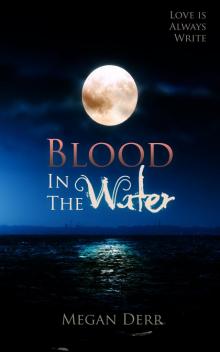 Blood in the Water
Blood in the Water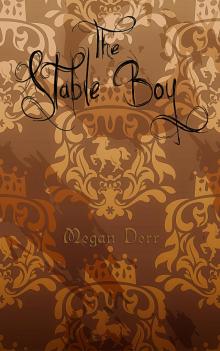 The Stable Boy
The Stable Boy Once Upon a Dream
Once Upon a Dream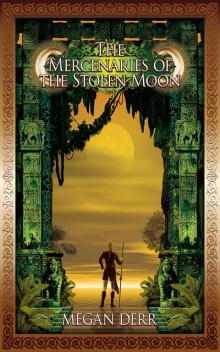 The Mercenaries of the Stolen Moon
The Mercenaries of the Stolen Moon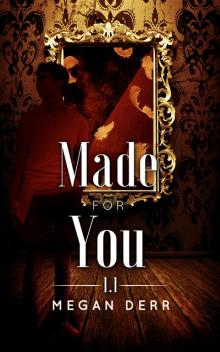 Made For You
Made For You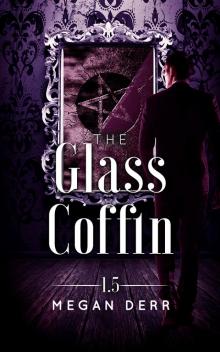 The Glass Coffin
The Glass Coffin The Ransom of a Night Hunter
The Ransom of a Night Hunter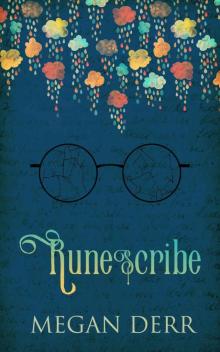 Runescribe
Runescribe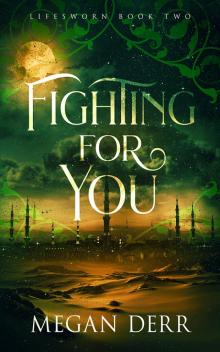 Fighting for You
Fighting for You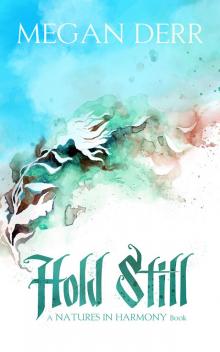 Hold Still
Hold Still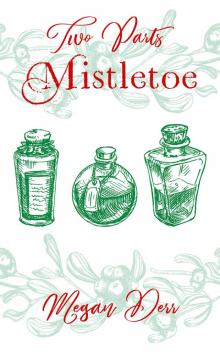 Two Parts Mistletoe
Two Parts Mistletoe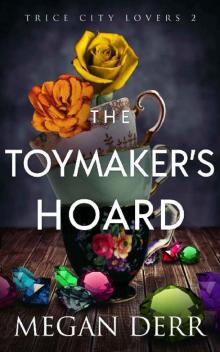 The Toymaker's Hoard
The Toymaker's Hoard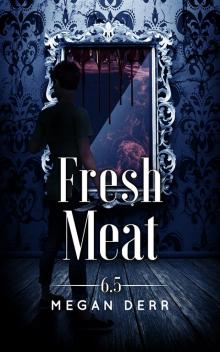 Fresh Meat
Fresh Meat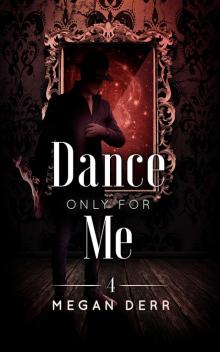 Dance Only For Me
Dance Only For Me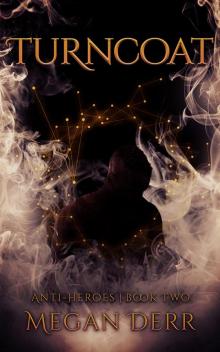 Turncoat
Turncoat Little Moments, #1
Little Moments, #1 Crown Jewel
Crown Jewel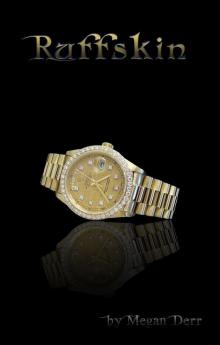 Ruffskin
Ruffskin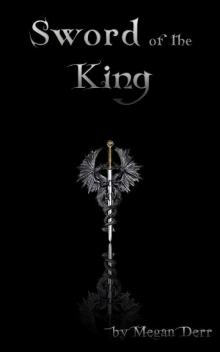 Sword of the King
Sword of the King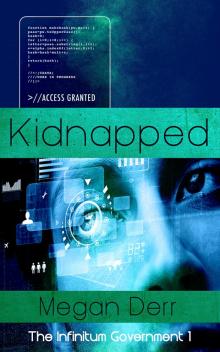 Kidnapped
Kidnapped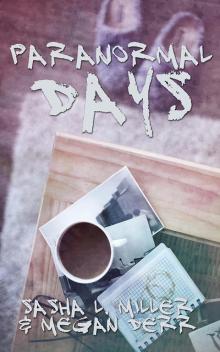 Paranormal Days
Paranormal Days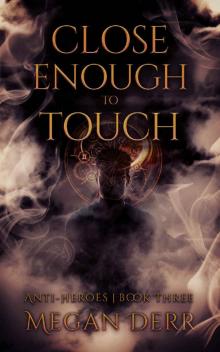 Close Enough to Touch
Close Enough to Touch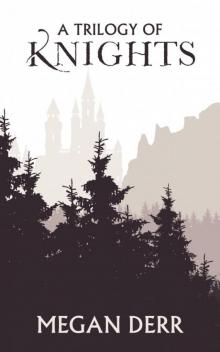 A Trilogy of Knights
A Trilogy of Knights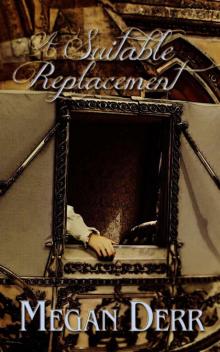 A Suitable Replacement (Deceived)
A Suitable Replacement (Deceived)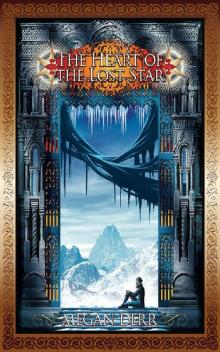 The Heart of the Lost Star (Tales of the High Court Book 3)
The Heart of the Lost Star (Tales of the High Court Book 3)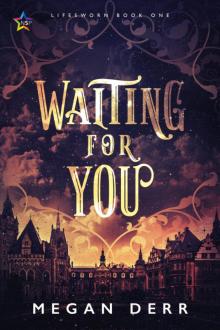 Waiting for You
Waiting for You Burning Bright
Burning Bright Little Moments, #2
Little Moments, #2 A Game Most Dangerous
A Game Most Dangerous Stone Rose
Stone Rose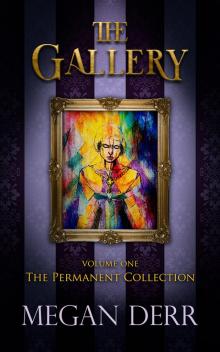 The Gallery
The Gallery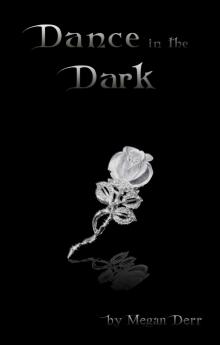 Derr_Megan_-_Dance_in_the_Dark
Derr_Megan_-_Dance_in_the_Dark Dragon Magic
Dragon Magic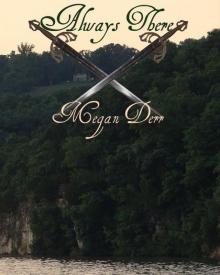 Always There
Always There Love You Like a Romance Novel
Love You Like a Romance Novel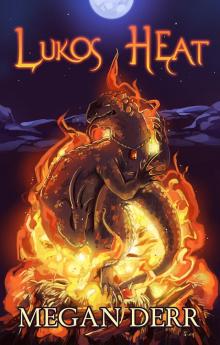 Lukos Heat
Lukos Heat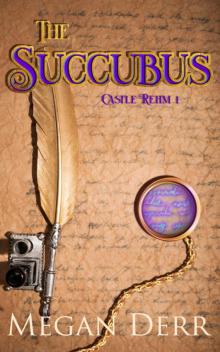 The Succubus
The Succubus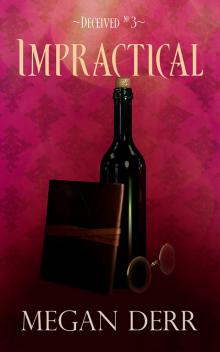 Impractical
Impractical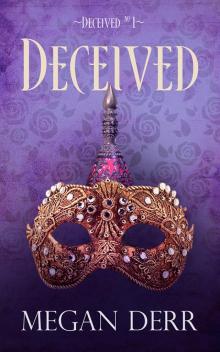 Deceived
Deceived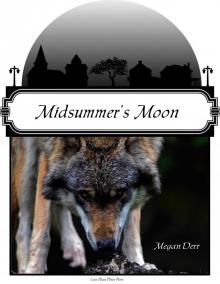 Midsummer's Moon
Midsummer's Moon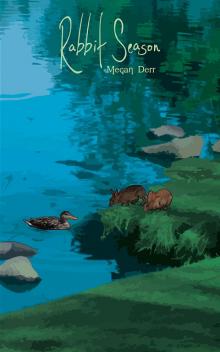 Rabbit Season
Rabbit Season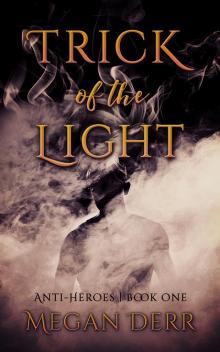 Trick of the Light
Trick of the Light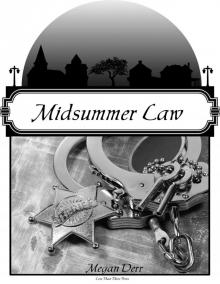 Midsummer Law
Midsummer Law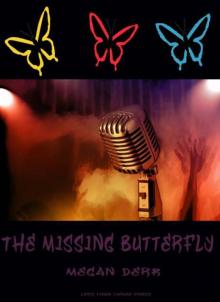 The Missing Butterfly
The Missing Butterfly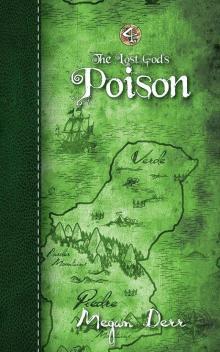 Poison
Poison By the Way
By the Way Finder Tolan
Finder Tolan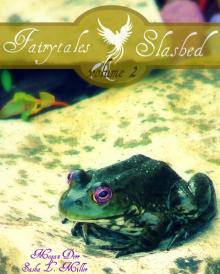 Fairytales Slashed, Volume 2
Fairytales Slashed, Volume 2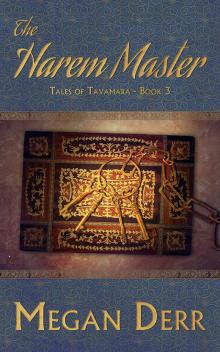 The Harem Master
The Harem Master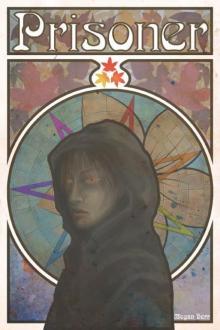 Prisoner
Prisoner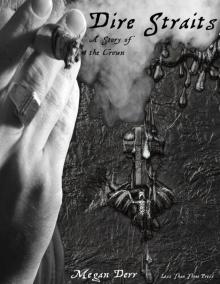 Dire Straits
Dire Straits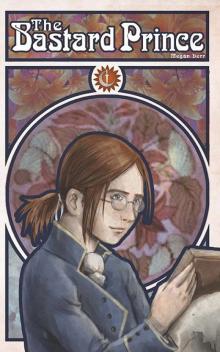 The Bastard Prince
The Bastard Prince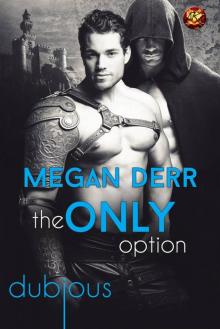 The Only Option
The Only Option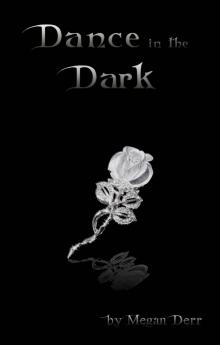 Dance in the Dark
Dance in the Dark Treasure
Treasure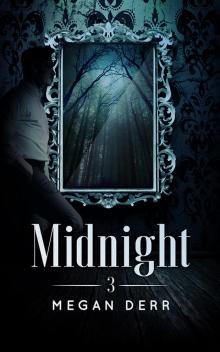 Midnight
Midnight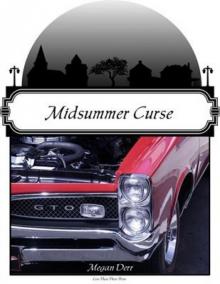 Midsummer Curse
Midsummer Curse Shine Forever
Shine Forever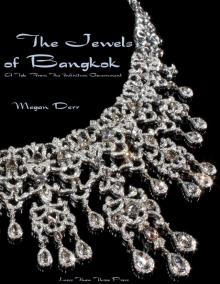 Jewels of Bangkok
Jewels of Bangkok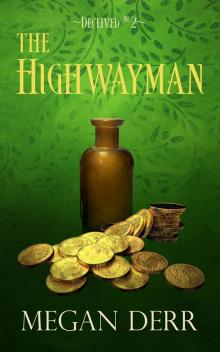 The Highwayman
The Highwayman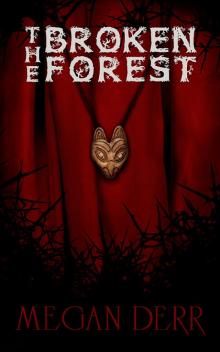 The Broken Forest
The Broken Forest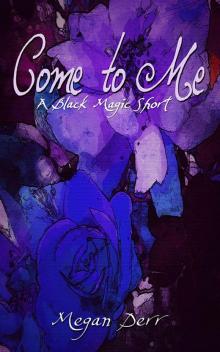 Come to Me
Come to Me